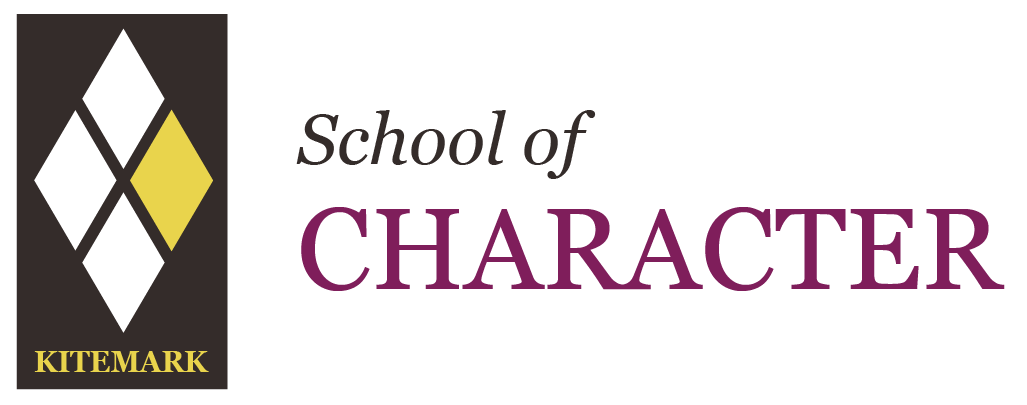Character Education at Aston Fields Middle School
Aston Fields Middle School has always strived to achieve high standards of personal development in all aspects of school life. We believe that this is not something which should just be part of our PSHCE curriculum, nor even something which should merely be a cross-curricular initiative. Indeed, we believe it should be something which is promoted throughout every element of the day- from registration, assemblies, lessons… even as pupils eat their lunch!
When we received news from the Jubilee Centre, at the University of Birmingham, with details of their work on ‘Character Education’, we knew this was just one further way of developing the work we do as a school to help pupils achieve all they are capable of.
What is Character Education?
Well, firstly, let us consider the word ‘character’. Within ‘Character Education’ we are considering the acquisition of various ‘virtues’ which help us to develop a positive contribution to society and a greater ability to work with others more effectively. ‘The doing of morally good actions’.
The concept of ‘Character’ is firmly rooted in the ethical tradition associated with Aristotle and later, Aquinas. The theory suggests that possessing a virtue moves beyond ‘doing something good’ but that it is a deeply ingrained disposition which an individual can utilise to full effect for a ‘greater good’.
So, what are these ‘virtues’?
| Identified Key Character Qualities | |||
| Perseverance | P | Confidence | P |
| Resilience | P | Optimism | P |
| Grit | P | Neighbourliness | C |
| Motivation | P | Community spirit | C |
| Ambition | P | Honesty | M |
| Drive | P | Integrity | M |
| Tolerance | M | Dignity | M |
| Respect | M | Conscientiousness | I |
| Curiosity | I | Focus | I |
Key: P = Performance Virtues, I = Intellectual Virtues, C = Civic Virtues, M = Moral Virtues
Throughout the research and development of Character Education resources, the University of Birmingham could categorise the various aspects of one’s character. The virtues were then labelled into four groups: performance, intellectual, civic and moral.
The labels are self-explanatory; the virtues are a means of enabling pupils to have optimal success in life. Through their acquisition they will achieve higher standards of academic attainment, witness positive cognitive development, make a positive contribution to society and have a clear sense of right and wrong.
To what extent is this a school’s responsibility?
Developing children’s characters is an obligation on us all. Although parents/carers are the primary educators of character, empirical research shows that they want all adults who have contact with their children to contribute to such education, especially their children’s teachers.
The development of character is a process that requires the efforts of both the developing individual and the society and its schools.
As a society, we should be determined to ensure all members can live well.
We will treat character education as something to which every child has a right.
We will do all, within our power, to enable pupils to flourish.
The goal of all proper character education is to equip pupils with the intellectual tools to make wise choices of their own within the framework of a democratic society.
What are we hoping to achieve and how will we recognise acquisition of virtues?
We could recognise the development of virtues, within our pupils, through their positive achievements within society.
They may demonstrate ALTRUISM. This may include their willingness to help others, through voluntary work, and demonstrating an understanding as to how their behaviour affects others. Helping does not have to be a work of charity; it could be as simple as showing support to a fellow pupil within their studies.
They may demonstrate an ability to BOUNCE BACK. Also, demonstrated through the development of ‘Growth Mindset’ pedagogy, they may show RESILIENCE. They can overcome set-backs and try again. They have a level of positivity and determination that is visible to others.
Thus, they become COMFORT-ZONE busting. They are prepared to try out new activities which are unfamiliar, possibly in task or environment. They can collaborate with others, make new friends and work with others with whom they may not naturally form alliances.
Finally, they develop a sense of DESTINATION. They have high aspirations and can set their own goals to enable attainment. Through their attainment they can develop skills which will serve them well within all aspects of life.
In all lessons, pupils and staff highlight the virtues which children may be able to acquire. We recognise and reward the demonstration of these, through our pupils’ Roll of Honour. A child can be nominated for any of the characteristics and staff and pupils provide praise and reward accordingly. We educate and facilitate opportunities for pupils, within volunteer projects and relevant initiatives commissioned by the Jubilee Centre, Birmingham, as well as the Department for Education. For example, the National Thank You Letter Awards in which pupils have had a great deal of personal success, as well as recognition by the University of Birmingham itself.
Character Education is an integrated part of our pupil planners and displays around the school. This is because Character Education embodies our ethos, here at Aston Fields Middle School:
‘Striving for Excellence, Learning for Life’
If you would like to know more about Character Education at Aston Fields Middle School, please contact Mrs Philip, Lead Teacher for Character Education.


